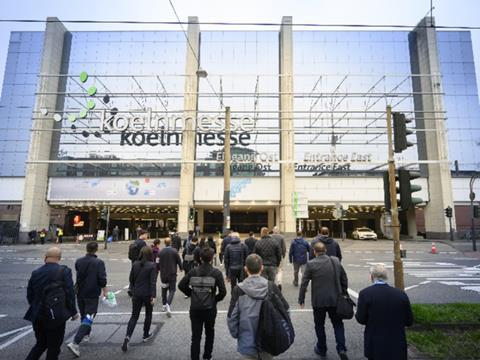
The Anuga FoodTec 2024 trade fair centred around the theme of ‘Responsibility’ and featured solutions from fields including energy and water management, digitalization and artificial intelligence.
New technologies and concepts for sustainable management of natural resources along the entire value creation chain were presented, and a reported 1,307 companies and nearly 40,000 trade visitors from 133 countries participated.
Core themes of the event included value creation, climate neutrality and food security, said to be directing the food and beverage industries away from short-term trends. The exhibited machines offered insights into innovative strategies for the minimization of food losses and the treatment of waste water, as well as procedures like high pressure processing, which keeps food fresh longer without preservatives.
The ‘Environment & Energy’ exhibition area was dedicated to progressive energy solutions. Examples include technologies such as solarthermics, heat pumps, biogas and biomass, which apparently advance energy transformation and contribute to CO₂ emissions reduction for companies, increasing energy efficiency.
Another area of focus was the use of reducing plastic and alternative packaging materials, and progress in the production of plant-based foods. Anuga FoodTec states that for the first time, a system was presented that makes it possible to produce cultivated food on an industrial scale.
The international exhibitors included representatives of companies such as AB InBev, Asahi, Kraft Heinz, Meiji, Mondelēz and Nestlé. Reportedly, the largest visitor groups from outside of Europe came from China, the USA, South Korea, Israel and Japan, with 1,307 exhibitors.
Organised by Koelnmesse, the next trade fair will take place in Cologne from 23rd-26th of February 2027, sponsored by the German Agricultural Society.
In other news, Newtec has revealed a new weighing solution for the convenience and processed food sector, offering customers ‘an additional layer for rapid distribution’ with memory pans for portion weighing. The 2008PCM / Memory Pans model intends to provide convenient weighing operations for a range of foods, including dried and snack foods, small frozen products, and small fresh foods.
Last month, The European Commission’s Joint Research Centre conducted a data-based study evaluating the environmental impacts of single-use and reusable food and beverage packaging in a range of materials and serving contexts – yet the Alliance for Sustainable Packaging for Foods (ASPF) cautions that it fails to consider the role of food preservation and safety in the pursuit of more sustainable packaging solutions.
If you liked this story, you might also enjoy:
Report: The ultimate guide to global plastic sustainability regulation
The Brief: Oxo-(bio)degradables: the who, what, and why of breaking down fossil-based plastics
Sustainable Packaging Summit: How Kraft-Heinz uses collaboration to drive innovation
The Brief: Using ocean-bound plastic in packaging – how, why and should we?














No comments yet